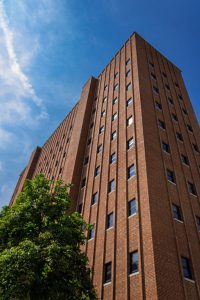Students speak out against proposal7 rally against plan to give
March 25, 1991
Opponents outnumbered supporters 17 to 0 Friday concerning a proposal to give the University Council the power to approve and amend the Student Judicial Code.
Fourteen of the 17 speakers were students arguing there is no need to change the jurisdiction of the code.
Student Association Speaker Preston Came said he doesn’t see what the problem is since the system seems to have been working so far.
Under the current system, the Judicial Advisory Board, which has an equal number of student and administrative members, makes changes to the code and, as a courtesy, allows the UC to review the changes. The changes then go back to the advisory board and are presented to the president, who makes the final decision.
“I think it’s very fitting that students should be allowed to judge themselves,” Came said.
He said 95 – 99 percent of the cases deal with problems in the residence halls and only 1 – 5 percent deal with academic problems.
“I find it strange that the faculty and administration would want to take over this,” Came said. “This is sort of like the students wanting to be the majority on the faculty tenure board or on the faculty grievance committee.”
The originator of the proposal, English Professor James Giles, told the opponents he came up with the proposal to clarify a relationship between the UC and the code. He said his other option was to leave the UC out of the process altogether.
Student Association President Robert McCormack said he wondered why the other option wasn’t presented to the UC instead.
“It is the student that is most affected and has the most to lose when reputation and future are on the line,” McCormack said.
Vice President for Student Affairs Barbara Henley also spoke out against the proposal.
“Students are the only individuals who can be charged with violation to the judicial code,” Henley said. “Therefore, it is appropriate that students maintain a major role in recommending changes to the system and code which affects them.”
Henley said students need significant involvement along with the faculty members who are appointed by the University Council to the advisory board. “The students’ role helps to protect and preserve the integrity of the judicial system and Student Judicial Code.”
Judicial Advisory Board Chairman Larry Bolles also spoke to keep the code under the advisory board.
“You must have students in positions where they can have a major impact on the policy, otherwise it will be a ‘Larry Bolles’ judicial system or a ‘Barbara Henley’ judicial system or a ‘John La Tourette’ judicial system,” he said.
The University Council committee will review the responses made at Friday’s meeting and will meet again this week to discuss all of the suggestions made.






